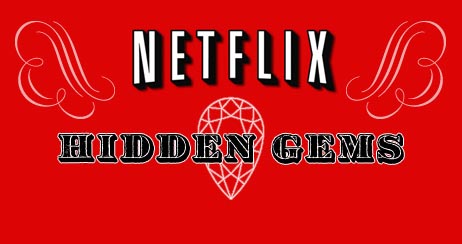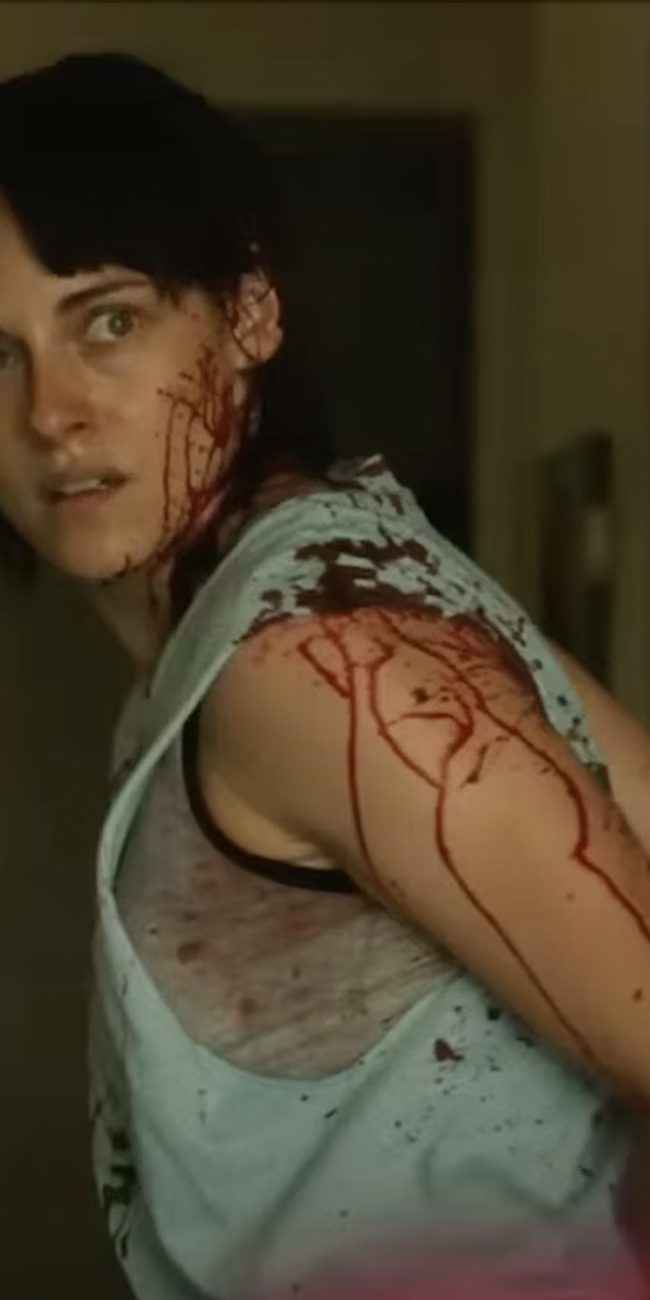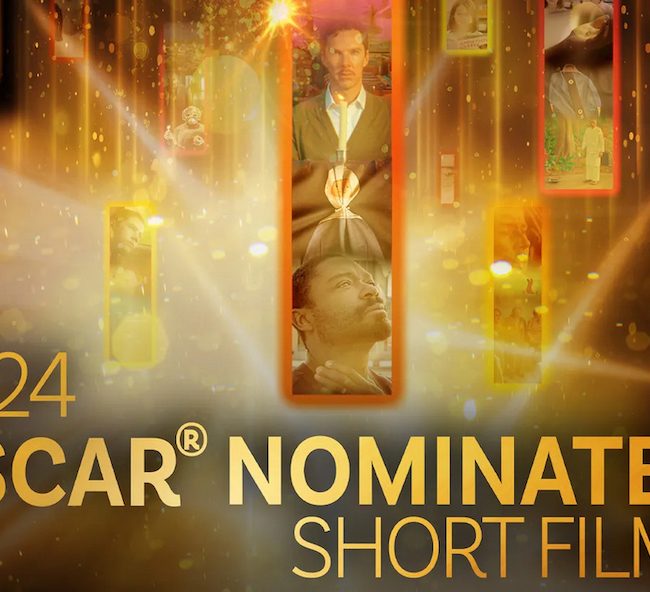NETFLIX HIDDEN GEMS: Issue #2
Okay, class. Raise your hands if you did your homework and watched all of last month’s selections. Anyone, anyone? As your teacher, I have a confession to make. I, myself, was only able to make it midway through the first batch. But though I only conquered half of the stack, I would already deem this course to be quite a worthwhile one. Further, I am fully committed to finishing last month’s titles before moving on to Issue #2. Having perused this month’s lineup and realized that, once again, I have seen less than more of these titles, I suppose that means I should stop typing and get back to the TV. If only all work/school assignments were this much fun!

***ISSUE #2: SEPTEMBER ‘09***
Driver 23 / The Atlas Moth (2002): This widescreen documentary directed by Rolf Belgum (who claims that he shot, edited, directed, produced and distributed his film for under $10) showcases Minneapolis-based musician/deliveryman, Dan Cleveland, as he battles against his obsessive-compulsive disorder. We follow Cleveland as he works for success with his band, Dark Horse. He’s a thoroughly winning subject and these films depict a fantastic personal journey of one man’s fight to overcome his inner demons. An astounding, and deeply moving, portrayal of madness. (Pamela Cohn)
I Wanna Hold Your Hand (1978) — Robert Zemeckis’ first feature film was also the first VHS tape I ever bought (out of a bin at a yard sale) and I watched it over and over until the VCR ate it. This overwrought and oddly charming comedy chronicles the first stages of Beatlemania—you’ll laugh with it and at it in equal measure (and wonder how this came from the mind of the man that brought youBeowulf). (Lena Dunham)
Blast of Silence (1961) — Few films have captured the bleak poetry and hardboiled humor of noir like Blast of Silence. As raw as the winter wind that whips through the streets, Blast of Silence follows a hitman (played by director/writer Allen Baron) who blows into New York City at Christmas hoping to make his kill as quick and quiet as possible—but then he is recognized by an old friend, and he must try and complete his mission without arousing suspicion. A B-eccentricity that saw little exposure upon its initial release, the film’s reputation grew by word-of-mouth until it became something mythological, yet it never saw any video release until Criterion’s fabulously restored DVD edition last year. Essential for those who like their noir extremely gritty and pulpy, with that odd elegance that can only come from the lowest of budgets. Plus, great vintage New York City location photography! (Cullen Gallagher)
XXY (2007) — Publicly overlooked despite a strong run on the festival circuit, Lucia Puenzo’s stunning XXY is the story of Alex (Inés Efron), an intersex teen who is facing a complicated dilemma about her sexual feelings and the rigid gender roles she encounters among her family and fellow teenagers. Puenzo’s take on the material, to place Alex’s normal, everyday confusion in the context of the outsized reactions of her social network, show the true heartbreak of at the center of Alex’s intersex identity; Alex just wants be a happy, passionate kid. One of the gems among the recent flowering in Argentine filmmaking, XXY places Puenza alongside directors like Lucrecia Martel and Alexis Dos Santos as an important voice in the new Latin cinema. (Tom Hall)
Beyond Hatred (2005) — A true diamond in the rough of Euro nonfiction, Beyond Hatred (winner of 2006 Teddy Award at Berlin for Best Documentary) explores an abysmal hate crime committed against François Chenu, a young gay Frenchman, brutally murdered by skinheads one night while walking through a park in Rheims. The film begins one year later, as the Chenu family revisits the events of François’ death while taking part in the sentencing of their sons’ murderers. A strikingly beautiful and cinematic story that inherently puts our own justice system into eloquent relief, Beyond Hatred is one of the most powerfully emotional docs I’ve ever seen, and definitely ranks as one of my top films of the decade. (Holly Herrick)
The Hours and Times (1991) — Christopher Münch’s first feature (actually, it’s only an hour long) got some attention when it was released, but seems to have dropped off the radar—people don’t talk about it much anymore, which is a shame, since the film has many virtues to recommend it. First, it’s a highly original take on the biopic: using the historical record as an imaginative jumping-off point, Münch gives us a possible version of what might have happened during a trip John Lennon and Beatles manager Brian Epstein took to Barcelona in April 1963, on the verge of Beatlemania’s international explosion. Münch easily sidesteps celebrity-cult prurience, rendering an evocative portrait of friendship and romantic yearning that ranges in mood from lyrical and tender to stark and raunchy, often following the lead of the mercurial, ultimately mysterious Lennon. Second, The Hours and Times is simply a gorgeous movie, exquisitely written and directed (and produced, shot, and edited) by Münch, and acted with great sensitivity by Ian Hart as Lennon and David Angus as Epstein. Finally, in a time when no-budget filmmaking is undergoing a resurgence, Münch’s DIY approach should serve as a model for others to emulate—with no crew, little equipment, and a budget of a few thousand dollars, he made a defiantly personal, searchingly intelligent work of art that, whatever fanciful games it plays with biographical fact, seems to carry the emotional complexity and candor of lived experience. (Nelson Kim)
State of Grace (1990) — Irish modern just pre-Benito Guiliani era NYC crime story, with Gary Oldman and Ed Harris as brothers who welcome back their childhood friend played by Sean Penn, who’s turncoated himself with an undercover mission for the police. Absurdist, stylized, operatic violent sequences coupled with understated performances by almost everyone (including a young John Turturro and John C. Reilly, plus an aging Burgess Meredith) except for Oldman, still in his fresh out of Sid stage & so over the top it’s almost hallucinatory. Key moment occurs where Oldman holds up a severed hand of an adversary to Penn and says “You need a hand?” See only to believe material for sure, and sadly forgotten. Great shot of famed Soho landmark Finelli’s for one particularly intense sequence. Go there. (Evan Louison)
Charley Bowers: The Rediscovery of an American Comic Genius (1917) — During the silent era, Charley Bowers created a series of unusual shorts, many of them lost today, combining live-action and stop-motion animation with his patented “Bowers Process”. Clever visual gags and endlessly inventive Rube Goldberg machines are underpinned by a slight sense of melancholy (he’s one silent comedian that doesn’t always get the girl, and it hurts) and a whole lot of hand-made charm. Definitely a subject worthy of rediscovery, and this two-disc set presents all but one of his surviving films. (Note: a couple of these films unfortunately conform to prevailing racial attitudes and stereotypes of the time period. It’s never a major element of any of the plots, nor is it ever on par with something like Birth of a Nation, but there’s enough to cause some mild discomfiture.) (Tom Russell)
Iguana (1988) — This 1988 film is set on a beautiful deserted island in the 19th century. A scared and deformed sailor who is tortured by his mates on a boat surrvives a shipwreck and creates his own kingdom on the island. He makes himself master and puts other survivors in chains and rules with an iron fist. A woman he enslaves becomes his concubine and through her he starts to question his view of humanity. For those who like Monte Hellman because of his spare minimalism first evidenced in Two-Lane Blacktop and theRide in the Whirlwind-era Westerns, you may be disappointed. But , if you are actually interested in Hellman’s world view as evidenced by several of his other features, Iguana is essential viewing. This is a portrait of an extreme individual who is directly confronting the standard assumptions about morality and the ‘just life’, it’s a character we’ve seen often in his movies, the man who is committed to finding his own meaning in life, no matter the cost. For years this film was ‘lost’. I would have loved to seen it projected but alas here it is on Netflix. I bought a bootleg version years ago in an underground Rome video store and have rarely found anyone who has seen it. It’s really quite amazing that Netflix stocks it. (Mike S. Ryan)
Flirting (1991) — The second film in John Duigan’s supposed autobiographical trilogy (the first being The Year My Voice Broke, the third yet to come) might very well be my favorite movie about the blossoming of young, first love. Noah Taylor’s intellectually-minded Danny Embling (Noah Taylor) is now at boarding school, and when he encounters a recent transplant to the nearby girls’ school, Thandiwe Adjewa (Thandie Newton), the butterflies begin to swim. Economically told yet filled with swirls of emotion, Flirting remains a very important film in my own personal canon of favorites. (Note: While Nicole Kidman’s presence is displayed prominently on the box cover, she only plays a peripheral role. Flirting is Taylor and Newton’s—and Duigan’s—show.) (Michael Tully)











